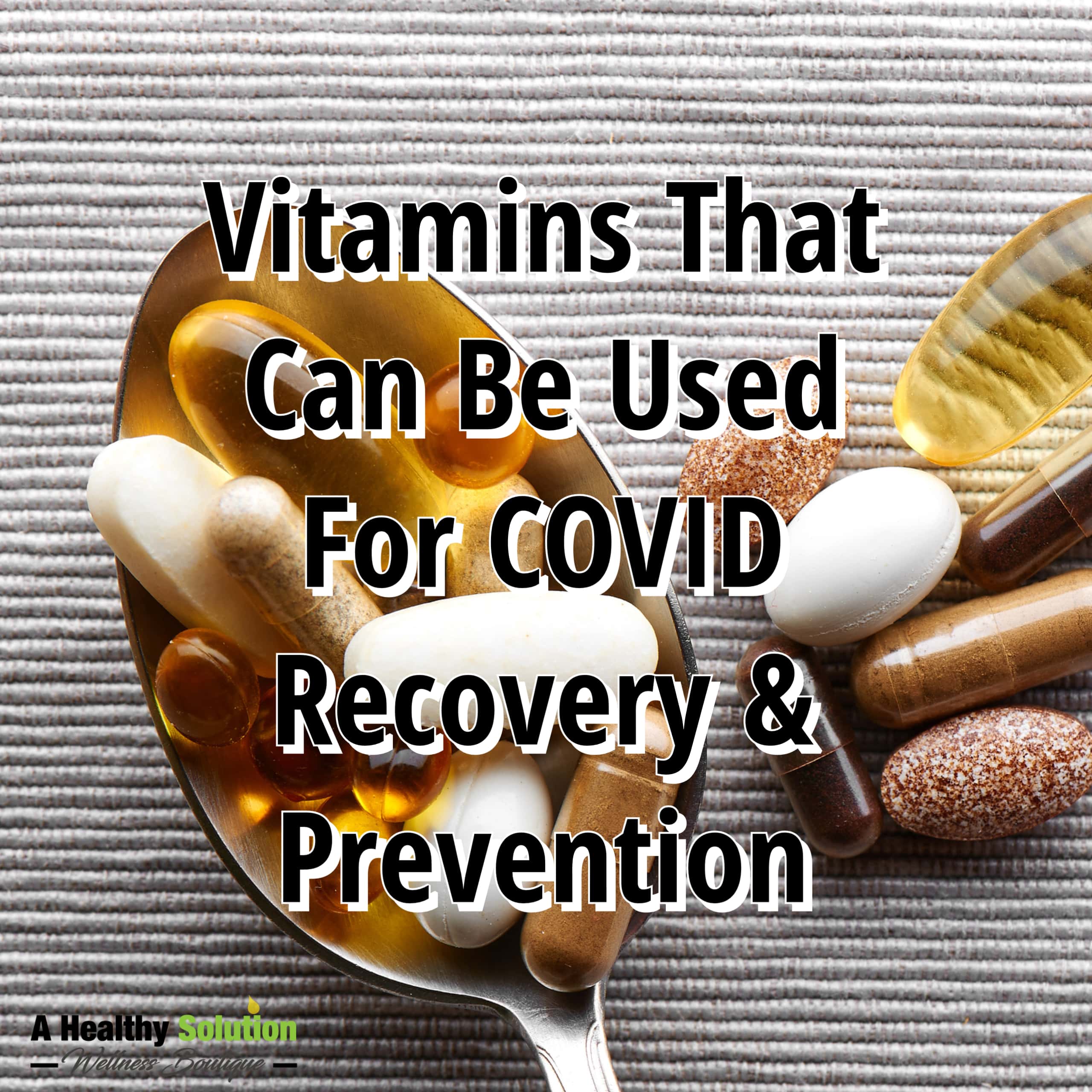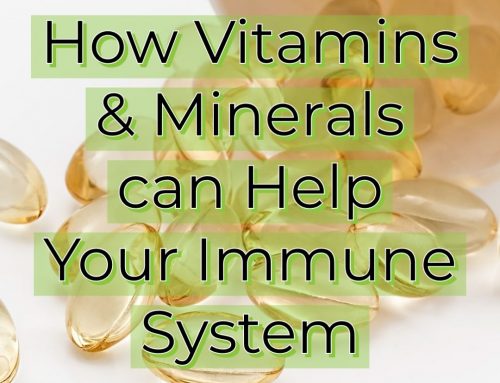We all know about Covid, it’s been going around since late 2019 to now and it’s been hard to prevent people from getting infected. The best way to prevent sickness is through the vaccine, but there are ways to help boost your immunity and help with Covid recovery. In this blog, we will discuss what types of vitamins that can be taken to help you recover and to help with potential prevention of Covid-19.
While there is no exact “cure” for this illness, there are ways to add to your recovery and immunity process. Before the vitamins you can use, there is also a process called monoclonal antibody therapy that is an option. Monoclonal antibody therapy is FDA approved (EUA emergency use authorization) fast, safe, and effective. The Monoclonal antibodies are lab-created proteins that mimic the ones humans produce to fight viruses and disease. They defend the body by blocking Covid-19 viruses from attaching to and entering human cells. Regron-CoV/Monoclonal antibody therapy was approved by the food and drug administration for emergency use in November of 2020. This treatment has been tested extensively by Regeneron in a clinical setting and has shown about 70% of patients saying that it supported their immune system. In June of 2021, Regeneron found that their Monoclonal antibody therapy reduced symptomatic infections in the body. You are able to get the monoclonal antibody therapy at little to no cost. All insurance plans are accepted and once your insurance is billed, you can get the therapy as soon as possible. If you don’t have insurance, you are still able to get this therapy through the Health Resources & Services Administration (HRSA). All you would need to do is book an appointment and complete the registration process. The treatment is available at any time during specific clinics.
Now for the vitamins you can use to help with boosting your immunity. We have another blog discussing what you can take for immunity boosting in more detail, so there will be some overlapping topics on here as well. Some of the options people use for immunity boosting would be stuff like Zinc, Colloidal Silver, Vitamins C, D, E, and B6. Because COVID-19 comes with cold and flu-like symptoms, Vitamins B, C
and D, as well as zinc may be helpful in boosting your immune system and fighting the illness in the same way they can help you get over a cold or flu. Let’s look into each one to see what said benefits may be.
Zinc
Zinc supports a multitude of functions in the human body, it allows the body to make proteins and DNA, and promotes wound healing, it also plays a role in childhood growth and development. This mineral has also been shown to assist with chronic disease, neurological symptoms, osteoporosis, age related degeneration, sexual health, and more. Zinc can be found naturally in many foods, such as beans, meat,
and fish. It is also offered as a dietary supplement. Generally, you can get enough Zinc in your body through your diet and maybe a supplement, otherwise your body doesn’t require as much as you may think. The suggested dietary intake for adult women is 8 milligrams (mg) per day and 11 mg for men, according to the National Institutes of Health (NIH). That amount can come from zinc-rich foods, such as
oysters, red meat, crab, and lobster, or from supplements.
Colloidal Silver
The precise way Colloidal Silver functions are not fully understood. But what we do know is that it’s known as a natural anti-inflammatory that works rapidly to decrease swelling, repair inflammation in the skin or body. Colloidal silver can help people as a nasal spray that kills staph aureus and Pseudomonas aeruginosa infections that could directly trigger sinusitis and allergies. Colloidal silver is able to kill certain germs by obliterating proteins, which is why it was previously used in wound dressings. But silver has no known function in the body and is not an essential mineral. Though in small doses with other compounds, can be safe to have in your system and can provide the antibacterial benefits needed. It is generally not recommended to take large amounts of silver unless you consult your doctor first due to it being dangerous to take it in large amounts. Next, we have Vitamins C, D, E, and B6. We will discuss each one individually, let’s look into each!
Vitamin C
Vitamin C is an essential vitamin, meaning your body can’t produce it by itself. Yet, it has many roles and has been linked to impressive health benefits. It’s water-soluble and found in many fruits and vegetables, including oranges, strawberries, kiwi fruit, bell peppers, broccoli, kale, and spinach. The advised daily intake for vitamin C is 75 mg for women and 90 mg for men. While it’s commonly advised to get your vitamin C intake from foods, many people turn to supplements to meet their needs. Usually because they want to guarantee they get the amount they need in their system. Vitamin C is an incredible antioxidant that can strengthen your body’s natural defenses. Antioxidants are molecules that boost the immune system. They do so by protecting cells from harmful molecules called free radicals. When free radicals accumulate, they can promote a state known as oxidative stress, which has been linked to many chronic diseases. Studies show that consuming more vitamin C can increase your blood antioxidant levels by up to 30%. This helps the body’s natural defenses fight inflammation. Now vitamin D. Vitamin D is crucial for various reasons, including sustaining healthy bones and teeth. It may also protect against a range of diseases and conditions, such as type 1 diabetes. In spite of its name, vitamin D is not a vitamin, but a prohormone, or precursor of a hormone. Vitamins are nutrients that the body cannot create, and so a person must consume them in the diet.
Vitamin D
However, the body is able to produce vitamin D. Vitamin D plays a significant role in the regulation of calcium and maintenance of phosphorus levels in the blood. These factors are important for maintaining healthy bones. People need vitamin D to allow the intestines to absorb and reclaim calcium that the kidneys would otherwise excrete. In adults, vitamin D deficiency develops itself as osteomalacia, or
softening of the bones. Osteomalacia results in poor bone density and muscular weakness. A vitamin D deficiency can also present as osteoporosis, for which over 53 million people in the United States either seek treatment or face an increased risk.
Vitamin E
This vitamin can be naturally found in some foods, added to others, and is accessible as a dietary supplement. Vitamin E is a fat-soluble antioxidant that can help defend your body from oxidative stress. It may be useful in inhibiting or treating the symptoms of chronic inflammatory conditions such as diabetes and osteoarthritis. Still, more research is needed before any definitive conclusions can be made. Generally, people get enough vitamin E through diet, but supplements do exist. There may be some side effects to ingesting too much vitamin E over a longer period of time, and vitamin E can interact with certain medications if you’re not careful.
Vitamin B6
Vitamin B6, also known as pyridoxine, is a water-soluble vitamin that your body needs for several functions. It’s important for protein, fat and carbohydrate metabolism and the creation of red blood cells and neurotransmitters. Your body cannot produce vitamin B6, so you must obtain it from foods or supplements. Most people get enough vitamin B6 through their diet, but several people may be at risk for deficiency. Consuming adequate amounts of vitamin B6 is important for optimal health and may even prevent and treat chronic diseases. Low levels of vitamin B6 in older adults has been linked to signs of depression, but research is still looking into how B6 can be effective when helping mood disorders. Vitamin B6 may also be able to help with brain functionality as well. Along with mood disorders, B6 has been shown to help with conditions like Alzheimer’s and memory impairments by decreasing the homocysteine levels that have been associated with these conditions. In conclusion, these vitamins may help boost your immunity to help fight against Covid-19. While not an exact “cure”, it can make a huge difference in how you keep yourself healthy and safe. Always consult a doctor before trying any new treatments or if you show signs of Covid-19.



Leave A Comment
You must be logged in to post a comment.